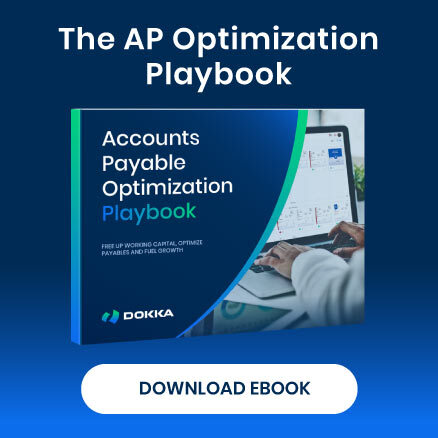As businesses grow and evolve, so do their financial management needs. Many companies reach a point where they require the expertise of a CFO but may not have the budget or need for a full-time, in-house executive. This is a common challenge, especially for small to medium-sized businesses and startups.
Managing cash flow, budgeting, financial reporting, and strategic planning becomes more complex as a business scales. However, hiring a full-time CFO can be a significant investment, often beyond what these businesses can afford or justify.
For many growing companies, a fractional CFO can be the perfect solution, offering flexibility, strategic guidance, and financial oversight without the long-term commitment of a full-time hire.
In today’s post, we’ll explore what fractional CFOs do, the services they offer, the types of financial problems they help solve, and when it makes sense for your business to hire one. We’ll also dive into how to find and hire the right fractional CFO, the qualifications to look for, and what you can expect in terms of cost and value.
Let’s get started.
What Is a Fractional CFO?
A fractional CFO is a finance professional who provides the same high-level financial expertise as a full-time CFO but on a part-time, contract, or project basis.
They bring seasoned financial leadership to businesses without the overhead costs associated with hiring a permanent executive. Typically, this role is filled by an experienced financial executive who offers strategic financial management, oversight, and advice – without the commitment of a full-time hire.
Unlike a full-time CFO, a fractional CFO is contracted to work with a business for a specific number of hours per week or month. They may work with multiple companies simultaneously, delivering high-level financial guidance at a fraction of the cost of an in-house CFO.
The concept of a fractional CFO is particularly appealing to small to mid-sized businesses, startups, and companies experiencing rapid growth or transition. These companies often need expert financial direction but may not have the resources or need for a full-time CFO.
What Services Does a Fractional CFO Offer?
Fractional CFOs offer a broad range of services tailored to meet various financial and operational needs. Their services can be customized to fit the specific requirements of a business, from short-term, project-based work to ongoing financial oversight.

Strategic Financial Planning
Fractional CFOs develop comprehensive financial strategies that align with a company’s long-term objectives, incorporating financial forecasting, budgeting, and modeling to establish a clear path for growth, profitability, and sustainability.
By analyzing the current financial position and predicting future trends, they help businesses avoid pitfalls and capitalize on growth opportunities. Their insights enable companies to make informed, data-driven decisions that support long-term success.
Cash Flow Management
Maintaining a healthy cash flow is critical for any business. A fractional CFO helps monitor, forecast, and optimize cash flow to ensure there’s enough liquidity to cover operational expenses and seize new opportunities.
They provide insights into how cash moves through the business and suggest adjustments – such as improving payment terms, managing working capital, or optimizing inventory levels – to prevent cash flow shortfalls.
Financial Reporting and Analysis
Accurate and timely financial reporting is essential for informed decision-making. A fractional CFO oversees the preparation of financial statements and helps define and track key performance indicators (KPIs).
Beyond the numbers, they offer in-depth analysis, translating raw data into actionable insights. This helps business owners and stakeholders understand the true financial health of the company, identify trends, and adjust strategies accordingly.
Fundraising and Capital Management
For businesses looking to raise additional capital to support growth or operations, a fractional CFO plays an important role. They assist in developing compelling investor presentations, creating accurate financial projections, and negotiating with potential investors or lenders.
Their experience ensures the business is financially prepared to secure capital, whether through equity investment, loans, or alternative financing. By presenting a clear and financially sound picture, fractional CFOs can increase the likelihood of securing favorable terms and sufficient funding.
Cost Management and Profitability Improvement
A fractional CFO helps businesses identify areas where costs can be reduced and profitability improved. They conduct thorough financial analyses of operational inefficiencies, identify waste, and implement cost-saving measures without sacrificing quality.
Additionally, they evaluate pricing strategies and margins to ensure products and services are priced appropriately to maximize profitability. These actions not only lead to immediate savings but also drive long-term financial health, ensuring the business operates efficiently and profitably.
Risk Management
Every business faces financial risks, whether from fluctuating markets, legal liabilities, or unforeseen operational challenges. A fractional CFO identifies these risks and works proactively to mitigate them. This may involve managing debt levels, optimizing insurance coverage, or implementing strategies to protect the company from market volatility.
With proper risk management in place, companies are better positioned to avoid costly surprises and navigate challenging situations with greater confidence.
Financial Software Implementation
As businesses grow, their financial software often needs to be upgraded or scaled to meet increasing complexity. A fractional CFO can oversee the implementation of new accounting automation software, financial controls, and reporting systems that enhance efficiency and accuracy.
They ensure these systems are scalable, user-friendly, and aligned with the company’s growth strategy. With the right financial infrastructure in place, companies can operate more smoothly, produce more reliable financial data, and make quicker, more informed decisions.
Mergers and Acquisitions (M&A) Advisory
For companies involved in mergers and acquisitions, having a fractional CFO on board is invaluable. They provide critical support in due diligence, helping to evaluate the financial health and potential of acquisition targets.
They also assist with valuation, negotiation, and the seamless integration of financial operations post-merger. With their guidance, businesses can avoid common M&A pitfalls, ensure the deal aligns with long-term financial goals, and maximize the value of the transaction.
Top Challenges Fractional CFOs Help Solve
Fractional CFOs are often brought in to tackle a variety of financial challenges, particularly as businesses grow or experience significant transitions. During periods of rapid change – such as mergers, leadership shifts, or expansions – expert financial guidance becomes crucial to navigate complexities and ensure long-term stability.
One of the most common issues is cash flow management, where businesses struggle to maintain liquidity or anticipate future financial needs. Many business owners also lack the financial insight required to make informed decisions, leading to uncertainty in strategic planning.
Securing funding can also be challenging if financial presentations and projections are not strong. Additionally, without proper financial controls, businesses risk errors, fraud, or non-compliance with regulations.
Top Challenges Fractional CFOs Help Solve:
- Cash flow issues
- Lack of financial insight
- Inefficient cost structure
- Difficulty securing funding
- Weak financial controls
- Navigating transition phases
Is Your Business Ready for a Fractional CFO?
Knowing when to hire a fractional CFO is crucial for maximizing the value they can bring to your business. The decision typically boils down to two key factors: the complexity of your financial operations and the scope of your strategic planning needs.
As mentioned earlier, for many small and mid-sized businesses, hiring a full-time CFO may not be financially feasible or necessary. In these cases, bringing in an experienced fractional CFO offers excellent value, providing access to high-level financial expertise without the cost and commitment of a full-time hire.

Here are key signs that your business might be ready for a fractional CFO:
1) You’re Experiencing Rapid Growth
When a business is scaling quickly, financial complexity increases, and decisions become more impactful. A fractional CFO can help manage this complexity, ensuring that growth is sustainable and financially sound.
2) You Need Financial Strategy, Not Just Bookkeeping
If your business has outgrown basic bookkeeping and accounting services but isn’t ready for a full-time CFO, a fractional CFO is the ideal solution. They bring strategic insight and long-term financial planning that goes beyond the day-to-day tasks of bookkeeping.
3) You’re Preparing for a Major Business Decision
Whether you’re planning to raise capital, expand into new markets, or undertake an acquisition, a fractional CFO can guide these processes. Their expertise ensures that your financial house is in order and that your decisions are based on solid financial analysis.
4) Your Business Has Financial Issues You Can’t Solve
If persistent financial problems – such as poor cash flow, mounting debt, or inconsistent profitability – remain unsolved, a fractional CFO can offer fresh perspectives and proven solutions.
How Much Does a Fractional CFO Cost?
The cost of hiring a fractional CFO can vary depending on the scope of services, the complexity of your financial needs, and the CFO’s level of experience. Fractional CFOs typically charge either an hourly rate, a monthly retainer, or a project-based fee.
- Hourly Rates
Hourly rates for fractional CFOs generally range from $150 to $500 per hour, depending on their experience and the industry. This option is often chosen for short-term projects or when a business needs specific expertise for a limited number of hours.
- Monthly Retainer
For ongoing services, fractional CFOs may charge a monthly retainer, typically ranging from $5,000 to $15,000 per month. Monthly retainer provides continuous access to the CFO’s expertise and is ideal for businesses that need regular financial oversight without the commitment of a full-time hire.
- Project-Based Fees
If you need a fractional CFO for a one-time project, such as preparing for an acquisition or setting up a financial software, they may charge a flat project fee. These fees can range from $10,000 to $50,000 or more, depending on the complexity and duration of the project.
While the cost of a fractional CFO may seem significant, it is often far lower than the expense of hiring a full-time CFO, which can range from $100,000 to $400,000 annually, plus benefits.
FAQ: Fractional CFO
What Is the Difference Between a Fractional CFO and a Virtual CFO?
Fractional CFOs and virtual CFOs represent two approaches to outsourcing the CFO role. While both offer similar benefits, they differ in how they deliver services and the scope of their responsibilities.

A fractional CFO is a part-time executive who typically works on-site or is local to the business. They integrate deeply into the company, overseeing daily financial operations with an ongoing commitment of set hours each week or month. This arrangement generally comes at a higher cost due to the personal presence required, making it ideal for businesses that need consistent financial leadership and in-person interaction.
In contrast, a virtual CFO primarily operates remotely, using digital tools to manage financial tasks. Their involvement often focuses on specific projects rather than daily operations, allowing for more flexible, project-based engagements. This remote nature typically makes their services more cost-effective, making them a suitable option for tech-savvy companies that are comfortable with remote financial management.
What Are the Benefits of Hiring a Fractional CFO?
Fractional CFOs offer a cost-effective solution, delivering high-level financial expertise without the hefty price tag of a full-time CFO. Their flexibility means businesses can hire them on a part-time or project basis, adjusting their services as needed.
With experience across various companies and industries, fractional CFOs bring valuable insights and a broad perspective. Plus, as external advisors, they provide an objective, unbiased view of your company’s financial health, helping to spot opportunities and risks with fresh eyes.
What Are the Drawbacks of Hiring Fractional CFOs?
While fractional CFOs offer a lot of advantages, there are a few potential drawbacks. Since they work with multiple clients, their availability can be limited, so they might not always be there right when you need them.
Also, because they’re not fully immersed in your business like a full-time executive, they may not grasp every nuance of your operations. As your business expands, you may eventually need a full-time CFO, and transitioning from a fractional to a permanent CFO can be tricky, especially if your fractional CFO isn’t interested or available for a full-time role.
What Qualifications Do Fractional CFOs Have?
They are typically seasoned financial professionals with impressive educational backgrounds and extensive work experience. Here are some key qualifications you should expect from a fractional CFO:
- Education: Most fractional CFOs hold advanced degrees in finance, accounting, economics, or business administration. Many also possess certifications such as Certified Public Accountant (CPA) or Chartered Financial Analyst (CFA), showcasing their technical expertise in financial management and analysis.
- Industry Experience: A strong fractional CFO will bring a wealth of experience, often having held leadership positions in multiple companies. They may also have specific industry experience, which can be a crucial advantage depending on the nature of your business.
- Technical Skills: Fractional CFOs should be proficient in financial software, data analytics, and financial modeling tools. Their ability to implement and manage advanced financial systems helps ensure accurate reporting and efficient processes.
- Strategic Thinking: Beyond technical skills, fractional CFOs need to excel in strategic thinking. They should be capable of providing long-term financial planning, assessing market opportunities, and guiding the company through periods of growth or transition.
How Can You Find the Right Fractional CFO for Your Company?
You can start by seeking referrals from other businesses or by working with a reputable staffing agency that specializes in financial executives. Be sure to thoroughly vet potential candidates and conduct interviews before making a decision. And last, but certainly not least, consider factors like their communication style, availability, and how well they align with your company culture.
Follow these steps to find the best match:
- Define your needs: Before diving into your search, clearly outline the services you need from a fractional CFO. Are you looking for help with fundraising, cash flow management, or strategic financial planning? Knowing your specific needs will help narrow down your search to candidates with the right expertise.
- Use professional networks: Tap into your professional network, including accountants, business advisors, and colleagues, for recommendations. Often, referrals from trusted sources can lead you to high-quality candidates.
- Online platforms: There are many online platforms and marketplaces where you can find fractional CFOs for hire. Websites like Toptal, Hire CFO, and Fintalent specialize in connecting businesses with experienced financial professionals. These platforms often let you review candidates’ credentials and match you with the right expertise based on your business needs.
- Industry experience: Look for a fractional CFO with experience in your industry. Each sector has unique financial challenges and regulations, and a CFO familiar with these nuances will be better equipped to provide effective guidance.
- Interview multiple candidates: Don’t settle for the first candidate you meet. Interview several fractional CFOs to ensure you select someone who not only has the right skills but also fits well with your company’s culture and values.
- Check references and credentials: Verify the background and qualifications of potential hires. Request references from previous clients and check their success stories. You want to ensure that the fractional CFO you choose has a proven track record of solving similar problems and delivering value to businesses like yours.




